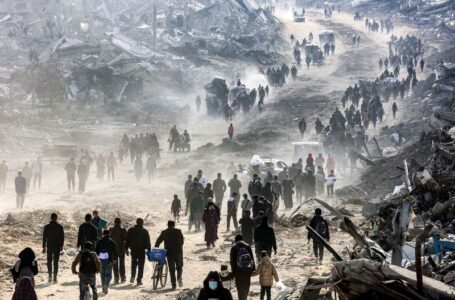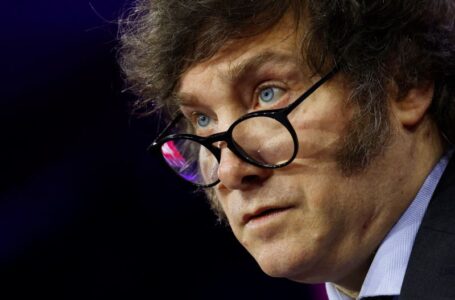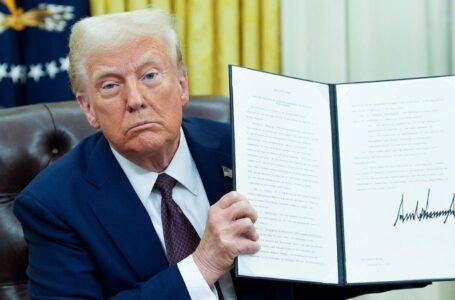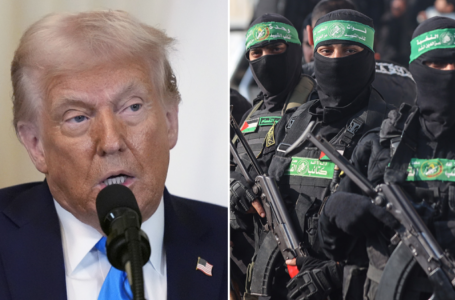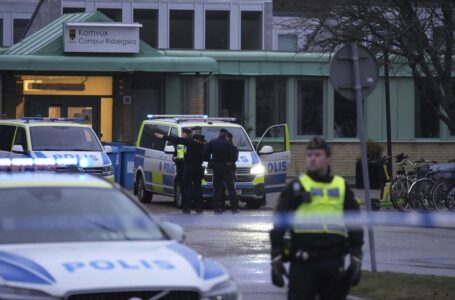Palestinians refuse to relive 1948 as Trump suggests leaving Gaza
Mourners gather for Navalny’s funeral in Moscow amid threat of arrest
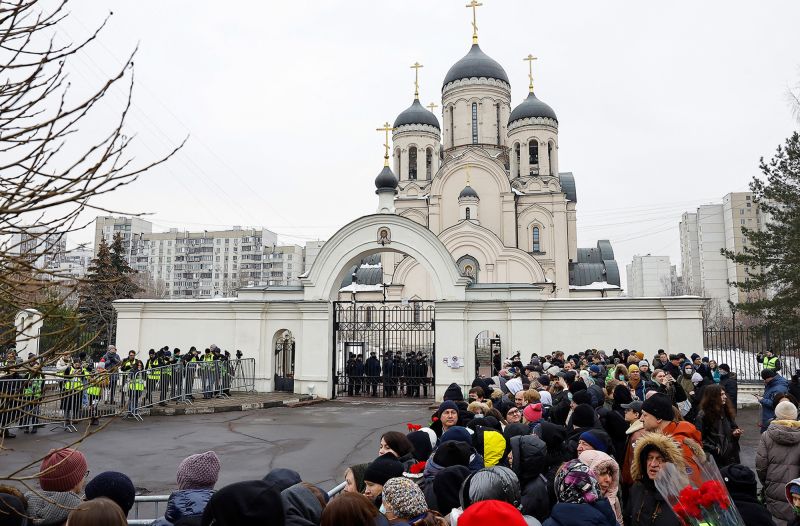

Navalny, Russian President Vladimir Putin’s most formidable opponent, died aged 47 in an Arctic prison on February 16, sparking condemnation from world leaders and accusations from his aides that he had been murdered. The Kremlin has denied any involvement in his death.
Navalny’s team encountered difficulty in retrieving his body from Russian authorities and hiring a venue for his funeral, which began at 2 p.m. local time (6 a.m. ET) Friday at the Church of the Icon of the Mother of God in Moscow’s Maryino district, where the Kremlin critic lived. He will then be buried at Borisov Cemetery.
Crowd control barriers were erected along the route to the cemetery ahead of the service, flanked by dozens of police vans. Police officers have been deployed on rooftops overlooking the growing line of mourners, video from the scene showed.
Ahead of the funeral, Kremlin spokesperson Dmitry Peskov warned Russians against unauthorized memorials for Navalny, saying those attending would be “in violation of the law.”
Despite the risks, mourners clapped and chanted Navalny’s name as his coffin arrived at the church. Another video showed people shouting: “You were not afraid and we are not afraid.”
Maria Pevchikh, a close aide to Navalny, said the chants for Navalny will continue. “People are chanting ‘Navalny! Navalny!’ in loud voices. This chanting we will hear in months’ time, in a year’s time,” she said.
“He was a true hero … I want to say to him ‘farewell,’” she said, adding that she was not surprised that the Kremlin had denied any involvement in Navalny’s death. “They demonstrate to the whole world we do what we want to do,” she said. “We can repress you.”
Another woman, Tatiana, 82, said she had attended several of Navalny’s meetings and was a longstanding supporter.
“I always supported their [Navalny’s] policy, their ideas. I share these ideas,” Tatiana said.
Neither woman said they were deterred by the potential risk of coming to the funeral.
But Yulia Navalnaya, Navalny’s widow, had said ahead of the funeral that she is concerned police will crack down mourners.
“I’m not sure yet whether it will be peaceful or whether police will arrest those who have come to say goodbye to my husband,” she told the European Parliament on Wednesday.
Navalny’s death was met with grief and anger across the world as well as inside Russia, where the smallest acts of political dissent carry huge risks. More than 400 people were detained at makeshift memorials for Navalny across 32 Russian cities, according to human rights monitoring group OVD-Info.
He was immediately arrested upon his arrival and spent the rest of his life behind bars on charges he dismissed as politically motivated.
This is a developing story and will be updated.

